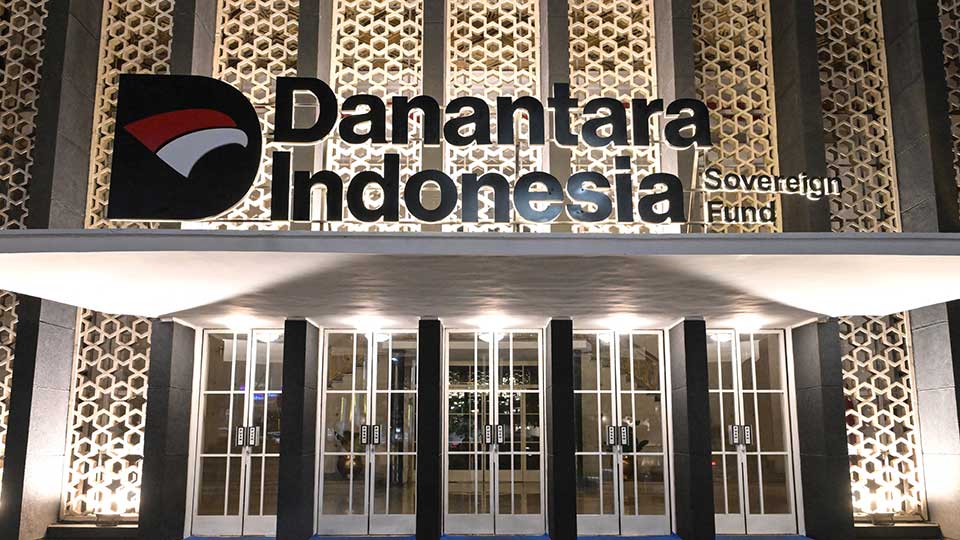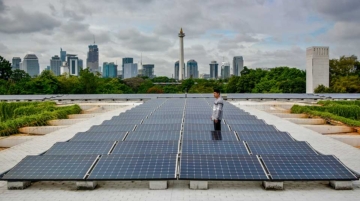
China has a prime opportunity to expand its economic presence in Indonesia through the newly established Daya Anagata Nusantara Investment Board (Danantara). Announced by President Prabowo Subianto, Danantara will manage $900 billion in assets, consolidating key state-owned enterprises (SOEs) into a centralized investment body.
For China, this creates an opening to strengthen its influence in Indonesia’s evolving economy, particularly in renewable energy, where Chinese expertise and investment could play a transformative role.
Modeled after Temasek Holdings (Singapore) and Khazanah Nasional (Malaysia), Danantara aims to streamline SOE assets and direct investments into strategic industries. Its success will depend on foreign capital and expertise, making China a natural partner. With deep experience in sovereign investment partnerships and a strong foothold in renewable energy technology, China is well-positioned to shape Danantara’s trajectory while advancing its economic and strategic interests in Southeast Asia.
Potential Advantages for Chinese Investors
China has long been active in Indonesia’s infrastructure and energy sectors, but Danantara offers at least five advantages that make investment more secure and attractive:
- Enhanced Stability and Risk Mitigation
Unlike one-off infrastructure projects, Danantara centralizes state-owned assets, ensuring long-term stability and a stronger regulatory framework. This reduces risks from sudden policy changes, which have previously deterred foreign investors. Additionally, Danantara’s losses are not classified as state losses, offering Chinese companies greater flexibility in investment decisions without legal complications in state courts. - Massive Asset Base for Security
With over $982 billion in assets under management, Danantara provides a secure investment environment for large-scale projects. The institutional backing ensures greater financial stability, reducing uncertainty for Chinese firms. - Streamlined SOE Collaboration
Danantara brings together key state-owned enterprises (SOEs), such as Mining Industry Indonesia (MIND ID) and Indonesia’s State Electricity Company (PLN). This means Chinese investors no longer need to engage multiple SOEs separately. Instead, Danantara offers a single, government-backed cooperation package, streamlining bureaucracy and improving coordination—particularly in nickel-based battery production, where energy providers and mineral extraction companies must align. - Potential Tax Incentives
Indonesia is exploring special tax facilities for investments in Danantara. While incentives must align with the global minimum tax of 25%, the government seeks ways to enhance investment appeal without offering direct tax holidays. - Alignment with China’s Green Finance Strategy
Danantara’s focus on renewable energy and infrastructure aligns well with China’s push for sustainable development under the Belt and Road Initiative (BRI). By investing through Danantara, Chinese firms can expand their green energy footprint in Indonesia while presenting themselves as responsible investors amid global scrutiny.
China’s leadership in renewable energy aligns perfectly with Danantara’s mission to accelerate Indonesia’s green transition. Through Danantara, Chinese firms gain a structured investment pathway into Indonesia’s solar and wind farms, battery storage projects, and grid modernization efforts.
Despite Indonesia’s abundant renewable resources, solar, wind, hydro, and geothermal energy development has been hindered by high capital costs and regulatory challenges. China’s expertise in solar panel production, battery storage, and grid modernization can help Indonesia overcome these obstacles, fast-tracking its shift to a cleaner energy mix.
Chinese energy giants LONGi Solar and JinkoSolar, which already dominate a large swath of the global solar market, can use Danantara as a gateway to expand in Indonesia like never before. Through Danantara, these firms gain access to exclusive investment incentives, including lower land acquisition costs, priority grid access, and fast-tracked regulatory approvals for large-scale solar and wind projects.
To fully capitalize on Danantara’s potential, China must approach its investments with strategic foresight, a strong commitment to sustainability, and sensitivity to Indonesia’s national priorities.
Beyond infrastructure, Chinese-based financial institutions, including the China Development Bank (CDB) and the Asian Infrastructure Investment Bank (AIIB), could play a key role in co-financing green energy projects under Danantara’s framework.
Unlike previous ad-hoc Belt and Road Initiative (BRI) investments, Danantara provides Chinese firms with direct access to Indonesia’s renewable energy sector, offering more stable returns while supporting China’s green finance priorities.
By shifting investments toward renewables in Indonesia, China strengthens its economic interests while reinforcing its global green finance leadership. Although China’s domestic climate goals are well-defined, its international commitments remain flexible, making Danantara a strategic avenue to demonstrate support for global renewable energy transitions.
Challenges and Considerations
Although Danantara presents major opportunities for China, it also comes with significant challenges. Managing $900 billion in assets requires strong governance and transparency, making oversight mechanisms crucial. China must navigate public scrutiny and regulatory safeguards to ensure its investments support Indonesia’s economic goals rather than creating dependency concerns.
Chinese investment in Indonesia is also a politically sensitive issue, especially in the infrastructure and energy sectors. Public skepticism toward Chinese-funded projects means any missteps in labor practices, environmental impact, or debt structuring could lead to backlash. To build trust, Chinese investors must prioritize transparency, fair labor policies, and strong local partnerships
Finally, while Danantara offers attractive incentives, the long-term success of Chinese investments will also depend on Indonesia’s ability to maintain policy consistency and regulatory clarity. A well-defined investment framework is essential to ensuring investor confidence and preventing disruptions.
The Bottom Line for China
Danantara marks a pivotal shift in Indonesia’s economic strategy, offering China a unique opportunity to shape its success. By positioning itself as a key investor in Indonesia’s renewable energy sector, China can strengthen bilateral ties while reinforcing its leadership in Southeast Asia’s green transition.
However, to fully capitalize on Danantara’s potential, China must approach its investments with strategic foresight, a strong commitment to sustainability, and sensitivity to Indonesia’s national priorities.
If executed effectively, China’s engagement in Danantara could usher in a new era of economic cooperation, advancing Indonesia’s development goals while solidifying China’s influence in one of Asia’s most dynamic markets.
This article is co-authored by Yeta Purnama, a researcher at the Center of Economic and Law Studies (CELIOS), and Muhammad Zulfikar Rakhmat, Director of the China-Indonesia Desk at CELIOS.





